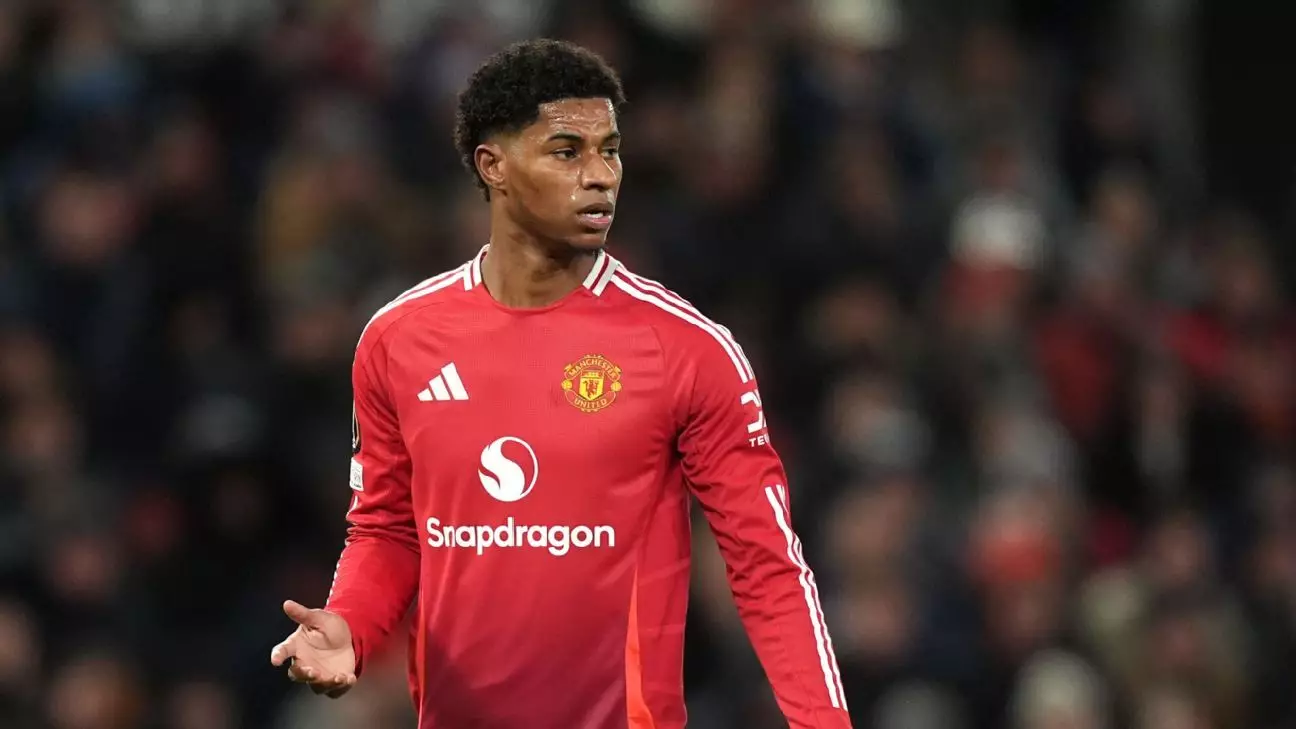In the high-stakes world of football transfers, few rumors generate as much excitement as Marcus Rashford’s potential switch from Manchester United to Barcelona. This possibility signals not just a career move but a significant shift in the power dynamics of European football. Rashford, a symbol of United’s attacking prowess, has seen his stock rise considerably, making him a prime target for clubs seeking to bolster their frontline.
Barcelona’s interest signifies a strategic shift for the Catalan giants. The club’s management appears keen on acquiring Rashford on a loan basis initially, with an eye toward making the deal permanent later. This approach allows Barcelona to avoid the immediate financial burden while assessing Rashford’s integration into their tactical setup. From Manchester United’s perspective, the £48 million asking price presents a tangible hurdle, but a loan deal might reduce the effective cost, especially if Rashford’s contract is close to expiring.
This potential transfer encapsulates broader themes—Barcelona’s financial recovery post-pandemic, their desire to reassert dominance in European football, and Rashford’s personal ambition to challenge himself at a club with historic prestige. If successful, it could mark a turning point for Rashford, exposing him to La Liga’s style of play and global spotlight. Despite the complications, the move reflects a growing trend of Premier League stars pining to showcase their talents on the European stage’s biggest platform.
Liverpool’s Bold Pursuit of Marc Guéhi and Other Transfer Strategies
Liverpool’s aggressive pursuit of Crystal Palace center-back Marc Guéhi underscores their unwavering commitment to defensive reinforcements. A fee of around £40 million is the club’s current bid, enforcing a clear “take-it-or-leave-it” stance. Guéhi, a highly-rated 25-year-old, is believed to be receptive to a move, attracted by the prospect of playing for a club with Premier League ambitions.
This bid illuminates Liverpool’s strategic mindset—targeting a young player with established Premier League experience, signaling their intent to build a resilient and dynamic backline. Such a move also reveals their willingness to pay a premium for talent they perceive as essential to their future success. The competition from Arsenal, Chelsea, and Manchester United adds layers of complexity, but Liverpool’s resolve demonstrates a clear understanding of the market’s true value.
Simultaneously, the transfer landscape features high-profile talents like Hugo Ekitike, with Eintracht Frankfurt eager to retain him amid burgeoning interest from Newcastle United and Manchester United. The striker’s value, estimated at €100 million, reflects the premium placed on young, versatile attackers capable of transforming a club’s attacking options. Frankfurt’s willingness to hold onto Ekitike highlights their strategic planning for Champions League campaigns, balancing financial considerations with the need for competitive depth.
Meanwhile, the evolving saga of Benjamin Sesko from RB Leipzig highlights the unpredictability of the transfer market. The hefty €90 million valuation creates a significant barrier for clubs like Arsenal, Chelsea, or even Al Hilal, who have shown interest but are hesitant to meet the asking price. Each move emphasizes the current climate’s intensity—clubs are willing to spend big, but valuations remain a contentious point.
The Global Chessboard: Emerging Transfers and Strategic Movements
Beyond the Premier League and La Liga, an array of intriguing negotiations are unfolding across Europe and beyond. Internazionale’s interest in Granit Xhaka exemplifies how Serie A clubs are strategic in their recruitments, especially with midfield pivots. Should Hakan Çalhanoğlu depart for Galatasaray, Inter’s focus on Xhaka would serve to stabilize their midfield while also aligning with their long-term squad vision.
The appetite for talented players extends into the Middle East and South America. Al Hilal’s evaluation of Benjamin Sesko and Ollie Watkins reflects the Saudi Pro League’s aggressive push to import renowned European talent, aiming to elevate their league’s stature globally. Despite high valuations, these clubs remain persistent, illustrating a shift in the traditional power balance of global football economics.
Meanwhile, high-profile European clubs remain engaged in an intricate dance of negotiations. AC Milan’s plans to reinforce their squad with players like Melvin Bard or Javi Galán signify their aspiration to stay competitive domestically and in Europe. The competition over players such as Georges Mikautadze or Richard Ríos reveals a cautious but ambitious approach, balancing financial constraints with the desire to identify strategic signings.
This intricate web of transfers underscores a crucial insight: the modern game’s transfer market is characterized by strategic patience, multi-club negotiations, and enormous financial stakes. Clubs are aware that each of these moves can reshape team dynamics and influence their competitive trajectory for years to come.
The New Era of Football Transfers: Power, Profit, and the Global Game
In this rapidly shifting landscape, transfer rumors are less about simple player swaps and more about seismic shifts in club philosophies and financial might. Teams like Barcelona, Liverpool, and even Saudi giants exhibit a blend of strategic patience and aggressive spending, reshaping the traditional paradigms of football competitiveness.
These moves also reflect broader economic trends—where wealth from new markets, broadcasting rights, and commercial deals fuels a relentless pursuit of excellence. The players themselves become symbols within this power struggle; their careers now intertwined with financial negotiations that can define their futures for years.
Ultimately, football’s transfer ecosphere is no longer just about team building or player valuation, but a potent reflection of a globalized, commercialized sport where ambition and financial muscle dictate the next chapter. As these negotiations unfold, the game continues to evolve into a complex chess match—each move calculated, each signing a testament to the game’s ever-expanding reach and ambition.

